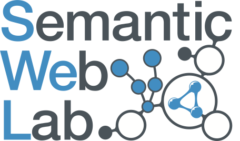Date: 11:15, 1 August 2016
Venue: F.17. Colin Maclaurin Building, Heriot-Watt University
Title: Theoretical Models of Decision Making in Ultimatum Game
Speaker: Tatiana V. Guy, Head of Department of Adaptive Systems, Institute Information Theory and Automation, Czech Academy of Sciences, Prague
Abstract: Decision-making (DM) is considered the most essential phase in a human volitional act and according to traditional economic models humans could be replaced by “rational agents”. Predictions implied by this are well seen on the considered Ultimatum Game (UG).
In a short informal talk I will discuss i) fairness aspects as the cause of the deviations from the predicted game-theoretical behaviour in UG responder’s behaviour and ii) how the impact of limited deliberation effort allocated by human-responder can be modelled in multi-proposer UG.
Bio: Tatiana V. Guy is Head of Department of Adaptive Systems, Institute Information Theory and Automation, Czech Academy of Sciences, Prague.
Research interests include conceptual, theoretical and algorithmic aspects of multiple-participant decision-making (DM) problem in complex dynamic and uncertain environment; descriptive DM under uncertainty; nature-inspired patterns of cooperation.
Degrees: Dipl. Eng.- Polytechnic Institute, Kiev, USSR, 1991;
Ph.D. – Faculty of Electrical Engineering, Czech Technical University, Prague, 1999.

